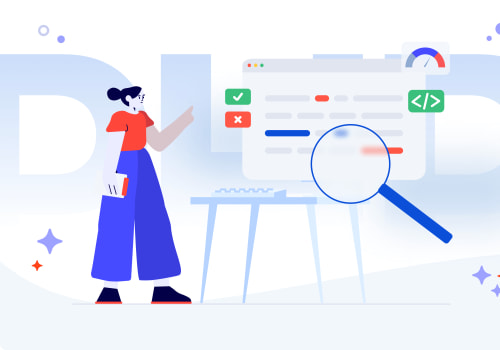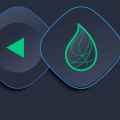Are you interested in learning coding but don't know where to start? With the abundance of resources available online, it can be difficult to know which ones are best suited for self-study. Fortunately, this article will provide you with a comprehensive guide to compiling the most relevant resources for self-study in coding, including free online coding tutorials. From tutorials to online courses, you'll be able to find the perfect tools for your learning journey. So, read on to discover how you can get the most out of your self-study experience in coding!Are you interested in learning coding but don't know where to start? With the abundance of resources available online, it can be difficult to know which ones are best suited for self-study. Fortunately, this article will provide you with a comprehensive guide to compiling the most relevant resources for self-study in coding, including free online coding tutorials. From tutorials to online courses, you'll be able to find the perfect tools for your learning journey. So, read on to discover how you can get the most out of your self-study experience in coding!
Benefits of Self-Study
Self-study in coding offers numerous benefits for students and professionals alike. One of the key advantages of self-study is the ability to work at your own pace and access The Best Coding Tutoring Platforms.You can take as long as you need to understand the material without feeling rushed by a teacher or instructor. Self-study in coding offers numerous benefits for students and professionals alike. One of the key advantages of self-study is the ability to work at your own pace and access The Best Coding Tutoring Platforms. You can take as long as you need to understand the material without feeling rushed by a teacher or instructor.In addition, self-study allows you to dive deeper into topics that interest you, allowing you to focus on areas of coding that you may find more challenging or rewarding. Another benefit of self-study is the ability to learn from experts in the field. With self-study, you can access tutorials and resources from experienced coders, developers, and engineers who have firsthand knowledge and experience in the field. This can be especially helpful when it comes to learning coding best practices and troubleshooting complex problems. Finally, self-study can be less expensive than taking coding classes or attending coding schools. By finding the right resources online, you can save money while still gaining valuable skills.
What is Self-Study in Coding?
Self-study in coding is the practice of teaching oneself how to code without relying on formal instruction or a teacher.This type of learning is becoming increasingly popular, as it allows students to learn at their own pace and explore new topics without the need for an instructor. Self-study in coding also enables learners to learn more quickly and efficiently, as they can focus on the material that is most relevant to their individual goals. Additionally, self-study in coding can be a great way to gain experience and develop skills without having to spend money on expensive classes or materials. Self-study in coding can provide many benefits to learners, including a greater sense of control over the learning process, an opportunity to explore topics in greater depth, and a more personalized learning experience. Additionally, self-study in coding provides learners with the flexibility to work around their own schedules and learn at their own pace.
Self-study in coding is also an excellent way to develop problem-solving skills, as learners are required to think critically about the material and figure out how to apply it to their own projects. Overall, self-study in coding can be a rewarding experience for those who are willing to put in the time and effort. With the right resources, self-study can be an effective and efficient way to learn coding and develop valuable skills.
How to Choose the Right Resources
When it comes to self-study in coding, it’s important to choose the right resources for your specific needs. There are a variety of tutorials, books, and websites available for self-study, and it’s important to know how to choose which is best for you. The first thing to consider when selecting resources is the type of coding you want to learn.Different types of coding require different types of resources, so it’s important to understand what type of coding you’d like to learn before selecting resources. Once you’ve determined the type of coding you’d like to learn, it’s important to consider the experience level of the resources. Some tutorials or websites may be too advanced for beginners, while others may be too basic for experienced coders. It’s important to select resources that are tailored to your specific experience level.
It’s also important to take into consideration the time commitment required by each resource. Some tutorials may be short and sweet, while others may require more time and dedication. Consider how much time you have available for self-study and choose resources accordingly. Finally, it’s important to read reviews or ask friends who have used certain resources before.
Reading reviews or asking for recommendations can help ensure that you are selecting quality resources that will help you learn effectively.
Examples of Successful Self-Study Projects
Self-study in coding can often seem like an intimidating task, but with the right resources, it can be an incredibly rewarding experience. One of the best ways to motivate yourself to learn coding is by exploring examples of successful projects that were created through self-study. Many of the world’s most popular websites and apps have been created through self-study coding. For example, Instagram was created using Python and Django by a former college student who learned coding through online tutorials and resources.Similarly, the popular video game Minecraft was created by a Swedish programmer who taught himself programming skills by reading online tutorials. In addition to larger projects, there are plenty of smaller projects that have been successfully completed through self-study. For instance, many students have created their own personal websites and blogs using HTML, CSS, and JavaScript. Others have built mobile apps or games using languages such as Swift or Java. These examples demonstrate that self-study in coding can be an effective way to learn new skills and create something meaningful.
With the right resources and dedication, anyone can successfully create something unique and innovative through self-study.
Tips and Tricks for Getting the Most Out of Self-Study
Self-study in coding can be an intimidating experience, but with the right resources, it can be a rewarding one. In order to get the most out of self-study, there are certain tips and tricks to keep in mind. The first and most important is to stay motivated. It can be difficult to stay motivated, especially when coding seems difficult or tedious.But it's important to remember why you are doing this in the first place and focus on that goal. Setting realistic goals is also important. It can be tempting to want to learn everything in one day, but it's better to set small achievable goals and slowly build up your skills. Another way to get the most out of self-study is to take breaks. Coding can be stressful and it's important to take breaks to help your mind rest and recharge.
Take some time away from the computer and do something relaxing or just take a walk. This will help you stay focused and motivated when you return to coding. Finally, don't be afraid to ask for help. There are plenty of online communities that are willing to help beginners with their coding questions. Don't be afraid to reach out if you are stuck on something or need advice.
With the right motivation, resources, and help, self-study in coding can be a rewarding experience.
Tools and Resources for Self-Study in Coding
Self-study in coding can be an intimidating experience, but with the right resources, it can be a rewarding one. There are a variety of tools and resources available to help you learn coding on your own. Here are some of the most popular:Online CoursesOnline courses are an excellent way to learn coding on your own. Many providers offer comprehensive courses on a range of coding topics, from web development to data science.These courses provide structured learning materials and practice exercises to help you master the skills you need.
Forums
Forums are a great resource for asking questions and getting advice from experienced coders. You can find forums for specific programming languages, as well as more general forums for coding in general. These forums are a great way to get answers quickly and get feedback on your projects.Tutorials
Tutorials are another great way to learn coding. There are many tutorials available online that cover a range of topics, from basic coding concepts to advanced techniques.You can also find tutorials that are specific to a particular programming language or tool.
Blogs
Blogs can be a great way to stay up to date with the latest trends in coding, as well as get tips and tricks from experienced coders. Many blogs provide tutorials, reviews, and other helpful resources for coding.Books
Books can be a great resource for self-study in coding. Many books provide comprehensive coverage of coding topics, from the basics to more advanced topics. They can also provide additional practice exercises and tips to help you master the skills you need.How to Stay Motivated During Self-Study
Self-study in coding can be an intimidating and challenging experience, but with the right strategies, it can be a rewarding one.Staying motivated during self-study is key to success. Here are some tips and tricks that can help you stay on track and keep learning:Set Deadlines: Setting deadlines for yourself can help you stay focused on tasks and provide a sense of accomplishment when they are reached. Try setting deadlines for each step of your coding journey, such as completing a certain number of tutorials or exercises within a certain time frame.
Break Tasks Into Smaller Chunks:
Breaking tasks into smaller chunks can help make the process of learning coding more manageable. For example, instead of trying to learn a whole language in one go, break it down into smaller topics and focus on one at a time.Reward Yourself: Rewarding yourself for completing tasks or reaching milestones can help keep you motivated. Set up rewards for yourself such as taking a break or treating yourself to something special after completing a section of your coding journey.
Find an Accountability Partner:
Having someone to check in with and keep you accountable can be a great motivator. Find someone who shares your goals and progress towards them together.Set Realistic Goals: Setting realistic goals for yourself is important for staying motivated. Don’t try to do too much at once and set achievable milestones that will keep you motivated and moving forward. Staying motivated during self-study can be difficult, but with the right strategies, it’s possible to stay focused and make progress towards your coding goals. With these tips, you can make self-study in coding a rewarding experience.
Troubleshooting Tips
Self-study can be an intimidating experience, and even more so when things don't go as planned.Fortunately, there are some tips and tricks to help you troubleshoot and get back on track when this happens. First, it's important to remember to be patient with yourself. Coding is a complex topic, and it takes time to understand the nuances of a language or technology. Don't be hard on yourself if you get stuck - troubleshooting can take time, and it's normal to feel frustrated. Fortunately, there are some tips and tricks to help you troubleshoot and get back on track when this happens. First, it's important to remember to be patient with yourself. Coding is a complex topic, and it takes time to understand the nuances of a language or technology. Don't be hard on yourself if you get stuck - troubleshooting can take time, and it's normal to feel frustrated.
If you do get stuck, try to break your problem down into smaller, more manageable pieces. This can help you identify the root cause of the issue and narrow down the possible solutions. Additionally, consider asking for help from experts or other coders who may have encountered similar issues before. Finally, make sure you have access to the right resources.
Take advantage of online tutorials, coding forums, and other online resources to get the help you need. Having a reliable source of information can make all the difference when troubleshooting coding issues. Self-study in coding can be a great way to develop your coding skills, and can lead to amazing results. It allows you to learn at your own pace, focus on the topics you are most interested in, and develop your own unique projects. With the right resources and tools, you can get started on your own self-study coding journey.
Make sure to choose the right resources, stay motivated, and troubleshoot as needed. With dedication and effort, you can achieve great things. Start your self-study coding journey today and reap the rewards of being able to code like a pro.











